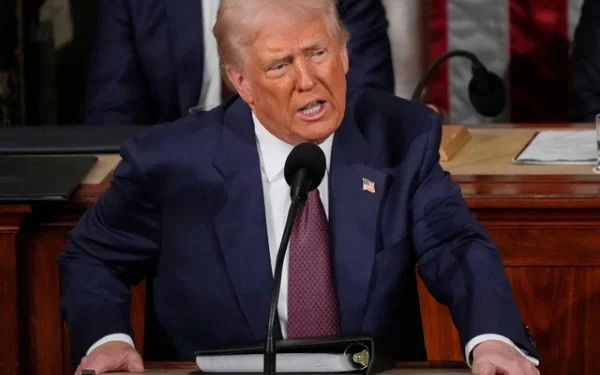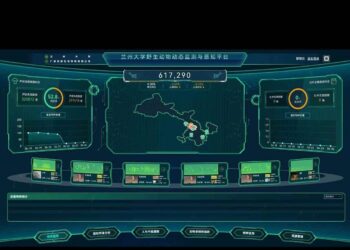Washington, D.C. – In a move that could significantly reshape the geopolitical landscape of the Middle East, US President Donald Trump has made a provocative statement on social media, hinting at the possibility of a change in Iran’s political leadership. While carefully avoiding the term “regime change” — a phrase burdened with historical controversy — Trump suggested that if Iran’s current government fails to “make Iran great again,” a leadership shift might be inevitable.
His remarks come at a time of heightened tensions between the United States and Iran, raising questions about the long-term strategic objectives of the Trump administration.
Trump’s Ambiguous Statement on Iran Sparks Global Debate
Taking to his social media platform, President Trump stated:
“I know it’s not politically correct to use the term ‘regime change,’ but if the Iranian government continues to fail to make Iran great again, then why not consider new leadership?”
Though the statement stopped short of calling for direct action, the underlying implication triggered widespread discussion among political analysts, diplomats, and the media. Trump’s words represent a significant rhetorical shift and a potential pivot in US foreign policy toward Iran.
Contradictions Within the US Administration
Interestingly, President Trump’s remarks appeared to contradict official statements made earlier by top members of his administration. Just hours before Trump’s social media post, US Defense Secretary Pat Hegseth clarified in a press briefing:
“This mission is not about regime change. That is not our goal. Our objective is to address specific national security threats.”
Vice President JD Vance also echoed similar sentiments in a televised interview, saying:
“We’re not seeking regime change in Iran. Our number one priority is to ensure Iran never develops a nuclear weapon.”
This internal dissonance reflects broader inconsistencies in the administration’s messaging, which may create confusion among international partners and adversaries alike. The contradiction also underscores the tension between Trump’s public persona and the more traditional diplomatic approaches favored by his advisors.
Historical Context: The Shadow of Iraq and Past Regime Changes
Trump’s apparent nod toward regime change in Iran invokes a deep and controversial legacy in American foreign policy. One of the most notorious examples is the 2003 invasion of Iraq under President George W. Bush, who championed regime change to remove Saddam Hussein from power. The justification at the time centered around the alleged presence of weapons of mass destruction (WMDs) — a claim that was ultimately discredited.
The war in Iraq, while initially supported by many in the US political establishment, became a symbol of overreach, misinformation, and long-term instability. The devastating human and financial costs of that war led to widespread criticism and significantly tarnished the reputation of neoconservative foreign policy.
President Trump has repeatedly used the unpopularity of that era to his political advantage. Throughout both of his election campaigns, Trump campaigned on a platform of non-interventionism, promising to end “endless wars” and focus on domestic priorities instead. His latest comments, therefore, raise questions about whether his administration is abandoning that core promise.
Regime Change: A Politically Loaded Term
The phrase “regime change” is politically explosive in both domestic and international arenas. Within the United States, especially among Republican voters, it evokes memories of costly military entanglements that failed to deliver lasting peace or democracy. Among global allies and international watchdogs, the term is often associated with US overreach and violations of sovereignty.
Trump’s rhetorical maneuver — acknowledging the term’s political incorrectness while effectively suggesting its necessity — allows him to maintain plausible deniability while signaling potential support for internal political shifts in Iran.
Current Tensions: Nuclear Program and Middle East Security
The renewed focus on Iran’s leadership follows increasing international concern over Iran’s nuclear program, which Washington alleges is progressing toward weapons-grade capabilities. Despite Tehran’s insistence that its nuclear program is for peaceful purposes, several intelligence assessments suggest otherwise.
The US has maintained strict sanctions on Iran since Trump re-entered office, further isolating the Islamic Republic economically. These sanctions, combined with cyberattacks and diplomatic isolation, have intensified domestic unrest within Iran, fueling speculations about the country’s political future.
President Trump’s recent comments may also be a calculated signal to Iran’s leadership amid growing unrest at home and increased military pressure from Israel and Western allies. The suggestion of change may aim to bolster pro-democracy movements inside Iran without officially committing the US to intervention.
Iran’s Response and Global Reactions
Iran has vehemently rejected any suggestion of regime change, viewing such rhetoric as a violation of its sovereignty and a continuation of America’s historical interference in the region. Iranian officials responded swiftly to Trump’s remarks, labeling them as “provocative” and “imperialistic.”
In a statement, an Iranian government spokesperson said:
“The Iranian people will determine their own political future. Any attempt by foreign powers to dictate leadership outcomes will be met with unified resistance.”
Meanwhile, international analysts warn that such public remarks could escalate tensions further and potentially undermine ongoing diplomatic efforts, including those led by European countries attempting to revive elements of the Joint Comprehensive Plan of Action (JCPOA) — the Iran nuclear deal.
Political Implications for Trump and the GOP
Trump’s statement also has domestic political consequences. Within his Republican Party, views on foreign intervention remain deeply divided. While some hawkish voices still advocate for a more assertive role in the Middle East, a growing number of conservative populists and libertarian-leaning members of Congress advocate for a reduced American footprint abroad.
By walking the line between suggesting regime change and denying it as an official goal, Trump may be attempting to appeal to both factions. His carefully worded post serves as red meat for hardliners, while still allowing him to argue to moderates and independents that he isn’t dragging the country into another war.
The Road Ahead: Diplomacy or Escalation?
Whether Trump’s remarks were merely political theater or a sign of real policy change remains to be seen. What is clear, however, is that Iran-US relations remain on a knife’s edge, with high stakes for both countries and the broader Middle East.
If the US continues to apply maximum pressure while signaling openness to political change, the next steps by Tehran — whether in the form of defiance or diplomatic engagement — will be pivotal. Meanwhile, the international community watches closely, hoping that cooler heads prevail in a region long plagued by conflict and instability.
Conclusion: Words That Could Shape the Future
President Trump’s statement — “Why not regime change?” — may have been casually phrased, but its implications are anything but minor. In a world where rhetoric often shapes reality, particularly in international relations, such comments can carry far-reaching consequences.
Whether intended as a strategic warning, political provocation, or genuine policy pivot, Trump’s words have injected new uncertainty into an already volatile geopolitical situation. The coming weeks will reveal whether the United States will pursue diplomatic engagement with Iran — or whether this marks the beginning of a more confrontational chapter.

























